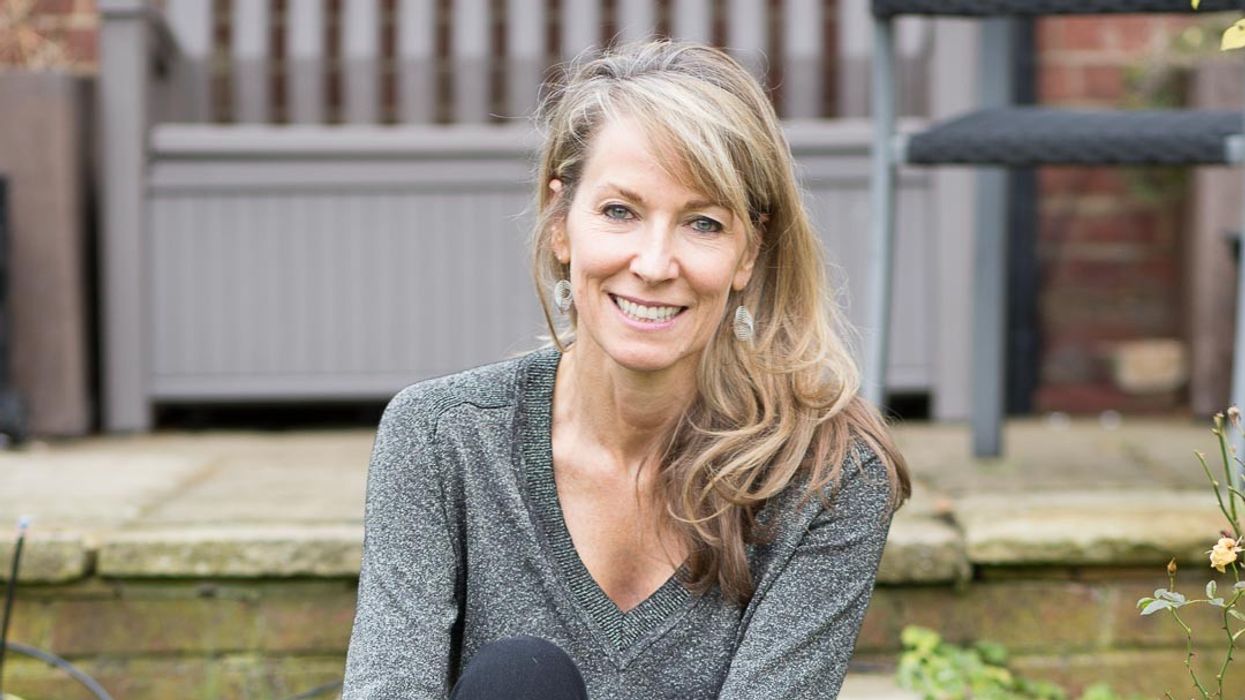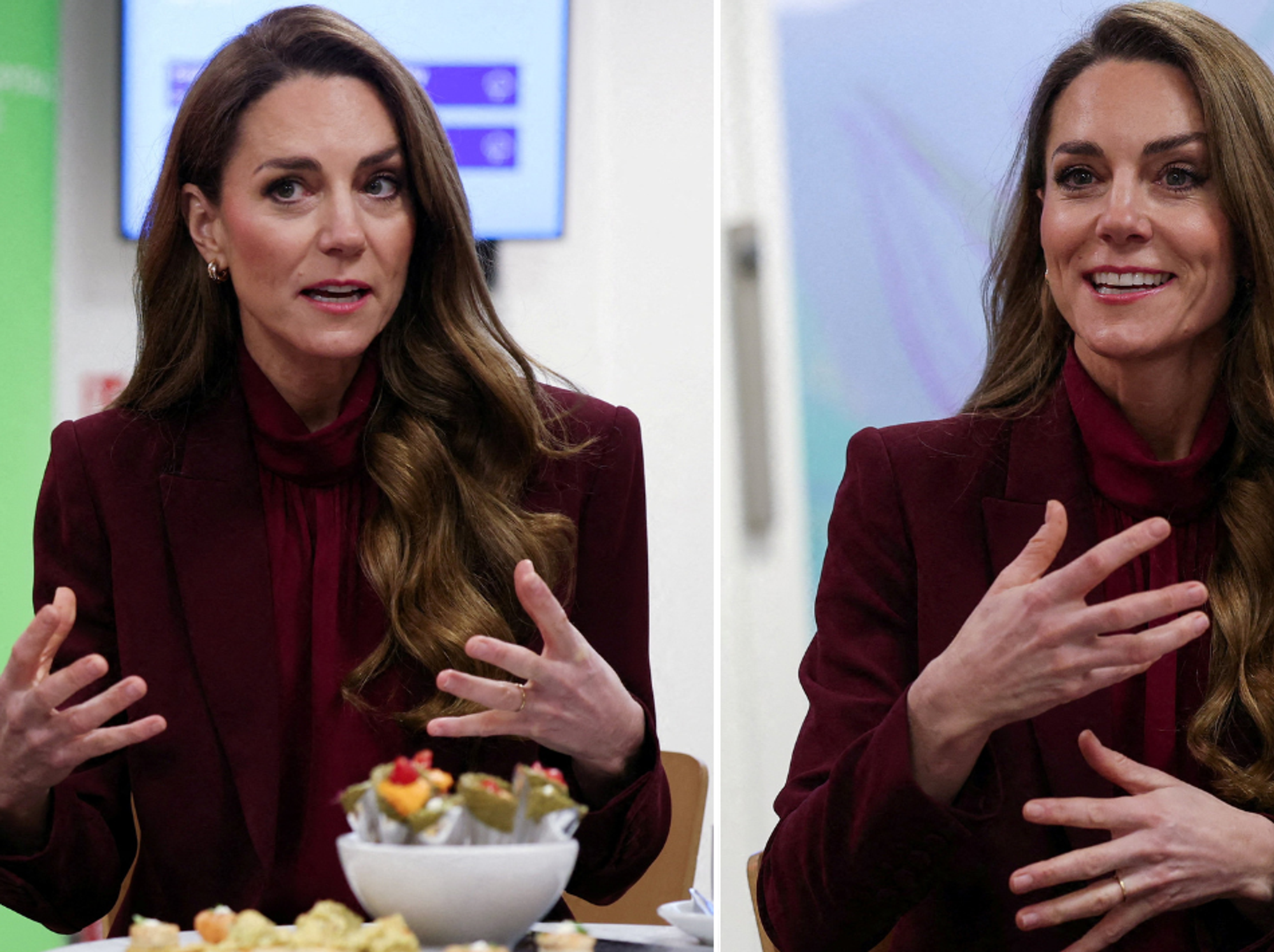Doctor Q&A: Are there any vitamins that should not be taken together? Dr Renée Hoenderkamp answers all your burning questions

Doctor Renée Hoenderkamp answers GB News members' burning questions | Doctor Renée Hoenderkamp

In this week's Q&A, celebrity NHS Doctor Renée Hoenderkamp looks at supplement combinations, the link between diet and cancer, and erectile dysfunction
Don't Miss
Most Read
Your health is not static: it's constantly changing and therefore requires daily upkeep.
This theme runs through the questions submitted to celebrity NHS Doctor Renée Hoenderkamp this week. They all point to the importance of routine, from the supplements you take in the morning to the meals you eat and the steps you take to look after your sexual health.
Don't forget to send your questions to health@gbnews.uk each week or click the comment button above and we'll publish Doctor Hoenderkamp's answers to your queries on GBNews.com/health every Friday.
You can also reach out to Doctor Hoenderkamp directly on Instagram and on Twitter/X to carry on the conversation.
And remember, the advice given is general and not individual and you should always seek individualised health care from a doctor.
With those caveats aside, see below Doctor Hoenderkamp's answers to this week's burning questions.
Are there any vitamins that should not be taken together?
This is an interesting question as the answers vary from source to source and the benefits or not of taking vitamin supplements are highly debated.
Having said this, I am a firm believer in the power of certain vitamins and take several myself so am interested in the best way to take them, with what and when.
Clearly, I can’t cover every supplement that might be taken but we can have a look at the most common and potentially most useful.
As a rule of thumb, water-soluble vitamins (B and C) can be taken together without food, and fat-soluble vitamins (A,D, K, E) can be combined, but always with food containing healthy fats but some need to be taken away from others!
Here are some of my favourites:
- Vitamin D - A critical vitamin that everyone should take in the northern hemisphere should always be taken with K2 to help absorption and if possible as a spray absorbed directly by the mucosa of the mouth.
- Vitamin C - It is important to avoid taking vitamin C with B12 as it can hamper absorption of B12. However, adding an iron supplement to vitamin C can help iron absorption and avoid some side effects. Take it any time of day, with water, (soluble preparations are great).
- Magnesium - Great for bowel function and sleep, so take this at night and don’t take too much calcium with it which can affect magnesium absorption.
- B vitamins (B12, folate) -Take in the morning, with water, as they can affect sleep. And don’t forget there are some medications which are adversely affected by vitamins.
- Iron and calcium - These must not be taken with Thyroxine as it reduces its effectiveness.
- Vitamin K - Do not take with a blood thinner such as warfarin as it counteracts its effect but vitamin E increases the effect of blood thinners.
- Vitamin B12 - This must not be taken with Levadopa because it lessens the effect.
- Liquorice root - This should not be enjoyed alongside diuretics or blood pressure medications. This can cause serious electrolyte balance issues.
- St. John’s Wort - Supplements may interact with many medications, including antidepressants, birth control pills, and blood thinners, reducing the effectiveness of these medications, and potentially causing harmful effects
So always ask your doctor if you are taking prescription medications and want to add vitamins. Be aware of the above interactions and plan your windows of supplementation to enhance, not detract from the desired effect. Good luck!
What is the number one cancer-fighting food?
This is not an easy question and there is no simple answer. In reality, the answer is a diet generally based around healthy, low processed foods, as raw as possible, across the range of nutritional groups, so vegetables, protein and fruit with some complex carbohydrate support.
You will see much reference to ‘phytonutrients’ when looking at cancer-fighting foods.
Common phytonutrients include:
- Polyphenols
- Phytosterols
- Saponins
- Carotenoids
All of the above have been shown to play an anti-cancer role. As phytonutrients are easily digestible from diet, it follows that the best answer is to ensure that you minimise the risk of cancer with a healthy diet before you get the point of sadly needing to think about fighting it.
The best way to think about it is "how can I maintain a healthy weight" and then plan your meals accordingly.
A major lifestyle contributor to cancer is obesity, so a diet that is healthy and balanced lowers the risk of 13 cancers, Cancer Reseach UK says.
Indeed, emerging data shows that there is a direct link between ultra-processed food and developing cancer.
So going through life eating healthy, unprocessed food is the best chance you can give your body in terms of avoiding cancer but then if it happens, also giving your body the best chance at fighting it from within.
There has been some work to suggest that polyphenols may modulate some processes that can lead to cancer development.
One study in 2018 even suggested that apple phloretin (polyphenol) inhibits the growth of breast cancer cells whilst ignoring healthy cells. This polyphenol inhibits a protein called glucose transporter 2 (GLUT2), which plays a role in advanced-stage cell growth in certain types of cancer.
Then lets pick apart what those phytonutrient-packed foods are. Essentially we are talking berries of every colour, broccoli, cauliflower, carrots, tomatoes, walnuts, grapes and other vegetables, fruits and nuts.
Then add good farm-reared (preferably pasture-fed) meat, line-caught fish (skip the farmed), eggs, full-fat dairy, (anything else is processed), garlic and ginger. Concentrate on a good mix across the day/week, cook from scratch and graze across the different colours of food. If you need to buy packaged food, turn it over and check the ingredients; if it has more than five ingredients it is likely processed. And batch cooking and freezing does no harm if that helps.
So in summary, the foods you eat and the weight you carry can dictate your cancer risk and should it come to eat, can help in the fight to beat it! But to make you smile as you plan your shop; there is always room for chocolate. Dark chocolate contains polyphenols, flavonoids, and antioxidants.
I'm taking Viagra for my erectile dysfunction but it's not working. Should I be worried?
Erectile dysfunction (ED), which affects almost 50 percent of men in the UK, can sometimes be an indicator of underlying health issues so should always be investigated by a doctor.
For example, ED may be caused by nerve damage often seen in diabetes, it may be a sign of advanced atherosclerotic disease (clogging of arteries in heart disease), leaky valves in the vessels that bring blood to the area, or Peyronie's disease, which causes the penis to become curved when it's erect.
In these cases, it is possible that Viagra or any other similar drug will not solve the underlying issue and so won’t work.
Hence it is important to have these investigated and to treat any underlying cause which may in turn solve the ED problem.
Having said this, whatever the cause, ED is a depressing and stigmatising condition and one which is often easily treated with Viagra.
Viagra (sildenafil) is a drug, otherwise known as a PDE5 inhibitor, which causes blood vessels to dilate, thereby allowing more blood flow into an area, including the penis. This helps to achieve and maintain an erection. If a patient has no other underlying condition and is using Viagra which either stops working or doesn’t work when first tried, there are options.
The first and easiest thing to try is a higher dose. (always do this in consultation with your prescribing doctor). But if a higher dose isn’t cutting it, you can try another PDE5 inhibitor, but swapping isn’t always a guaranteed solution so discuss with your doctor who can help you decide if it might work for you and the choice would include Cialis (tadalafil) or Stendra (avanafil). Tadalafil is often preferred because it has a longer window of activity, meaning you can take it in a daily dose. This can remove some of the psychological aspects of having to take a pill before sex.
Men may also find the following lifestyle changes help:
- Cut down alcohol
- Lose weight if you're overweight
- Stop smoking
- Eat a healthy diet
- Exercise daily
- Try to reduce stress and anxiety
It is important to remember that much of ED is psychological and the input of a therapist and techniques such as CBT can play an important role in overcoming this stigmatising condition.










